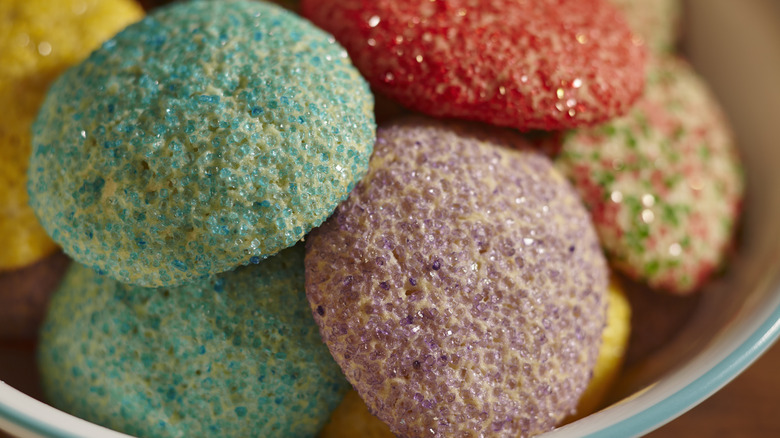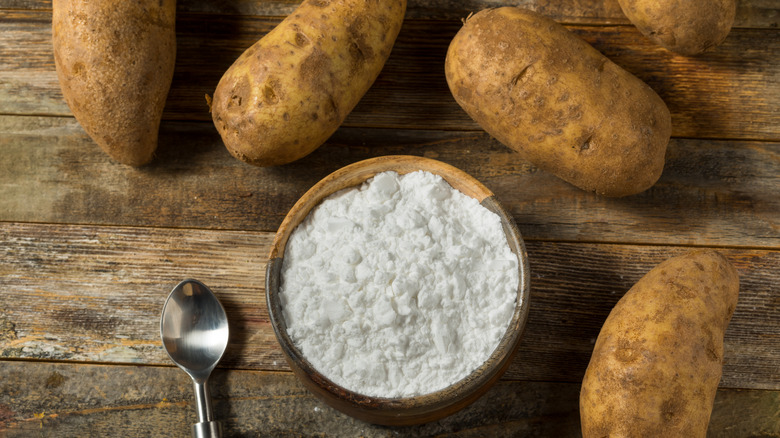Potato Starch Is The Secret To Extra Moist And Tender Cookies
Don't you hate it when some so-called food expert insists that a particular ingredient is absolutely essential to any well-stocked kitchen and then it turns out to be a rare and extremely pricey thing that has to be special-ordered? Yeah, us too, which is why we're pleased to bring you glad tidings of potato starch. Not only does this super tuber powder make your cookies extra moist 'n' tender, as advertised, but it's also something you should be able to pick up in the grocery store for not much more (or possibly even less) than cornstarch, an ingredient to which it bears a marked similarity.
Potato starch, like cornstarch, is a gluten-free thickener that can be used in sauces and gravies as well as in baked goods. Where the two differ, however, is that potato starch has the capacity to hold more moisture, so cookies baked with this ingredient will tend to be less crumbly than ones made with cornstarch. Potato starch dough can also stand up to a lot of manipulation, which makes it great for making carefully shaped cookies that won't spread out and turn into amorphous blobs in the oven. The finished cookies, too, won't have the tough texture that you might expect from overworked dough.
There are times when potato starch isn't the best choice
Even though potato starch makes an excellent — and economical — addition to any cookie-baking arsenal, it does have its limitations. For one thing, gluten-free bakers need to be aware that it really can't be swapped out 1:1 for wheat flour in cookies or cakes since it lacks the binding ability that the latter supplies. If you want to make moist, fudgy brownies or another similarly-textured bar cookie, though, a potato starch swap might work just fine.
As to how it stacks up to cornstarch, some sources may claim that potato is always the superior starch, but these reports seem to have been somewhat exaggerated. For one thing, potato starch is said to have a more "sandy" texture than cornstarch, which may or may not be a positive depending on how you like your cookies. Also, when it comes to using these two starches in non-baking applications, they are not created equal. While potato starch is better at holding moisture and may be able to take high heat better than its corny counterpart, it's not as good at standing up to prolonged heat and must be added closer to the end of the cooking time. What's more, its more sizable granules may make for sauces or puddings that are less smooth and more inclined to clump than ones with a cornstarch base.

